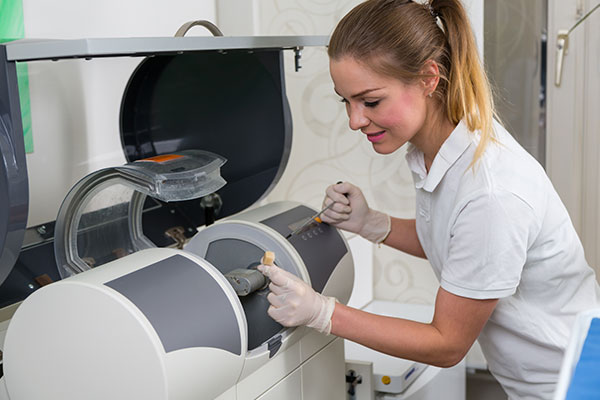Tips During Your Dental Crown Procedure

Crowns are essentially caps that fit over a damaged tooth in order to extend the tooth’s life. A dental crown procedure typically requires two visits to the dentist.
There are a few things you can do to help the process go smoothly.
First visit tips
The first visit is an examination, but there might also be a cleaning involved or the need to set up more appointments if any problems are found.
X-rays are taken of the tooth and jawbone to make sure there is no underlying decay or injury. An impression of the tooth is made so that the crown can be custom-made to fit. The fit will be determined by the material chosen to make the crown.
A temporary crown is placed while the new one is being constructed.
Here are a few tips to help ease the process of this first examination:
- Come prepared. Know the options and do the research before arriving. There are a number of materials to choose from and it will speed up the process if this decision has already been made. Options include but are not limited to gold, all-resin, porcelain and porcelain fused to metal
- Ask questions. If anything is unclear or confusing then ask. Do not be shy, it is your mouth. Be clear about expectations and ask questions that will help uncover the reality of those expectations or perhaps clear up any anxiety
- Care for the temporary crown. Care for the temporary crown through regular oral care, minus flossing. Avoid chewing on hard candy or ice. Stay away from sticky or chewy food and when possible chew on the opposite side of the mouth. This is not a permanent solution and is not as stable as the finished product will be. It is more prone to fractures and dislodgement than the permanent crown
Second visit tips
The second visit happens after the crown has been created. The temporary is removed and the permanent one is secured into place.
Here are a few tips for the second visit:
- Bring a friend. A local anesthetic will be used. Bring a friend or family member to aide with transportation
- Be patient. The dentist will need to make any necessary adjustments to make sure the bite is correct after cementing the crown in place
- Speak up. It is normal to experience pain, discomfort and sensitivity. This should pass after a few days if the procedure went as it should. If it does not, then speak up
- Take care of your crown. Continue good oral care practices and see your dentist for regular checkups. Once the anesthesia and numbness wear off from the procedure patients can return to eating normal foods
It’s important to follow these tips before, during, and after your dental crown procedure. Continue to take care of your dental work and natural teeth. You’ve invested a lot into that smile. Keep brushing and seeing your dentist twice a year to keep your smile at its best!
Request an appointment here: https://www.dentistofvisalia.com or call Visalia Care Dental at (559) 975-1213 for an appointment in our Visalia office.
Related Posts
After tooth decay or oral health concerns develop, prompt and effective treatment from the dentist is often required. A dental crown is one of the main treatment options dentists recommend to treat a range of oral health and cosmetic issues. A dental crown can improve a tooth's size, shape, and function and last for over…
A tooth with significant damage will need a dental crown or cap. This restoration can restore the form and function of your tooth. Getting a large filling or a root canal will need a cap to protect and strengthen the tooth. If you want to know how a dentist will use a dental crown to…
A dental crown can save a tooth that is in danger of extraction. Dental crowns serve a dual purpose. They reinforce the tooth structure and improve the appearance of the smile at the same time. This means that a dentist could recommend a crown as a treatment for tooth decay or injury. A cosmetic dentist…
Dental crowns can be used to fix various cosmetic and structural issues that affect the teeth. Also known as caps, dental crowns are some of the most versatile restorations used in dentistry, and they can last up to 25 years when properly maintained.Getting a dental crown attached to a tooth typically requires the dentist to…
